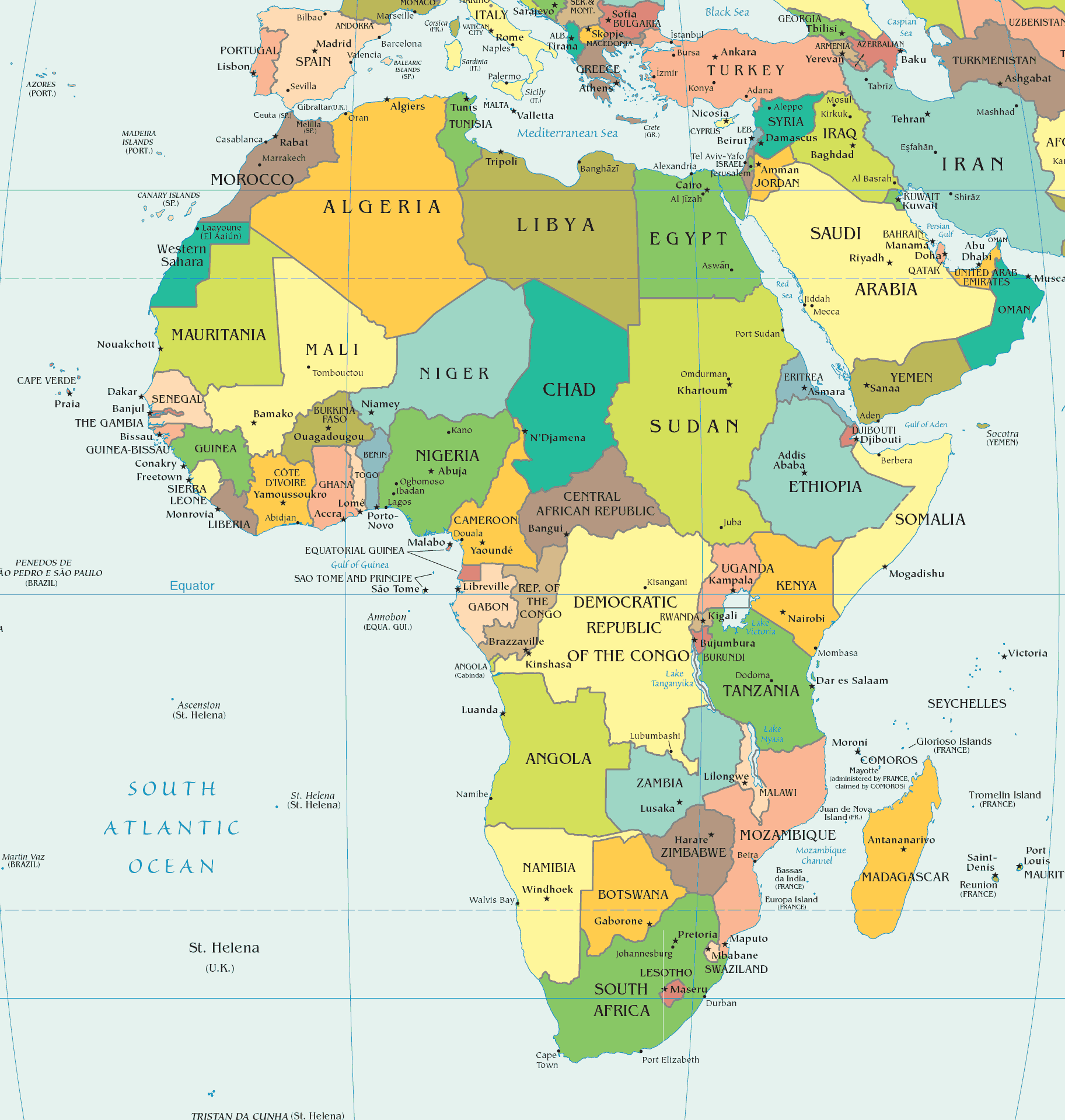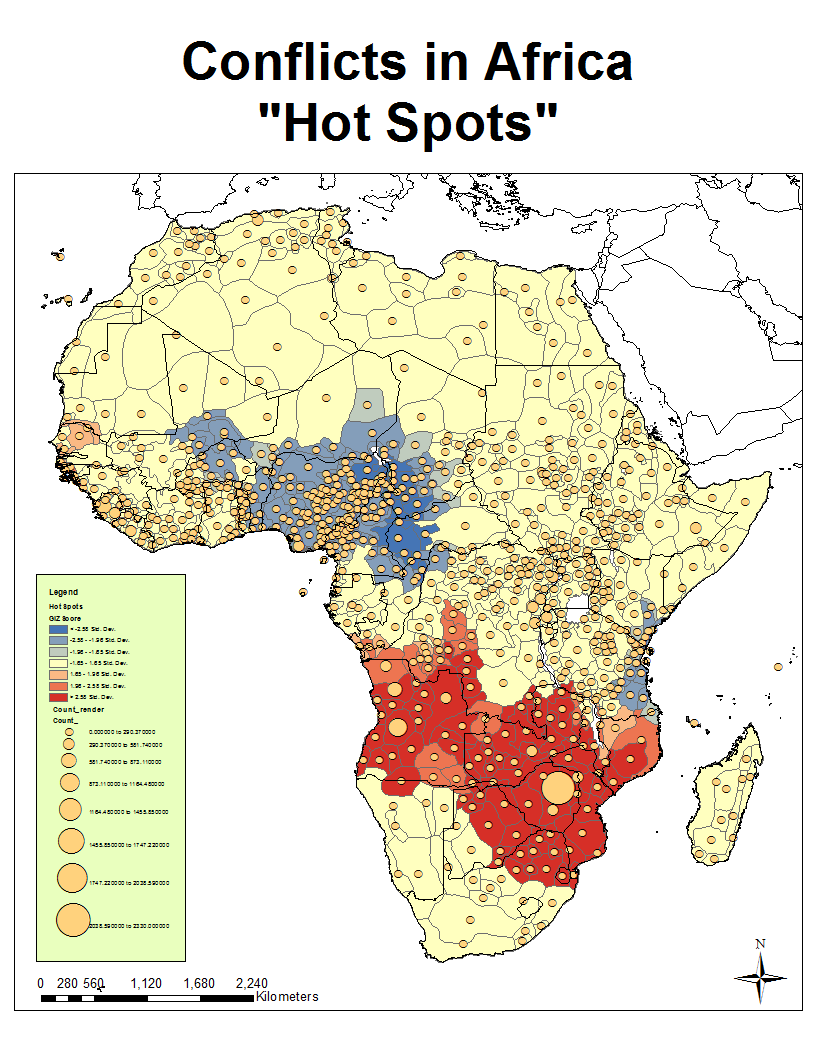About two weeks ago, I agreed to add an Elementary II level
class to my schedule. Another teacher was unable to finish the term, and I
thought Why not? and accepted the
challenge. Little did I know, that agreement lined me up for what must become
one of the most memorable lessons I’ve ever taught anyone anywhere. And that's a bold statement.
As I’ve mentioned
before, I teach English at a local refugee center that serves people who have come to Cape Town from Sub-Saharan countries
such as the Democratic Republic of the Congo, Malawi, the Republic of the
Congo, Somalia, Rwanda, the Central African Republic, and Burundi. We follow the English
for Life curriculum, meaning most of the lessons are already outlined and ready
to be taught.
 |
Source: http://www.ilike2learn.com/ilike2learn/ Continent%20Maps/Africa%20Political%20Large.gif |
I was welcomed to the refugee center for Monday’s lesson by
a protest occurring just outside the door, which left the atmosphere rather
hectic. The very determined group of protestors was singing and chanting, which
poured into the open windows of our classroom. I knew this would affect our
lesson, but I was ready for the challenge.
The day’s lesson encompassed “everyday jobs” like sweeping the floor, taking out the garbage,
cooking dinner, and making the beds. Through exercises such as “read and
repeat,” “write and share,” and general question-and-answer conversation, the
students practice reading, speaking, and writing English. I never expected the
lesson to turn around and teach me. However, it certainly did. It didn’t take
long for gender roles and gender equity to come into play.
Teacher’s question: “When do you do the dishes?”
Student’s statement: “I don't. That’s a woman’s job.”
I should have seen this one coming, as I knew most African cultures were rather rigidly male-dominant and sensitive to gender roles. After a few exchanges such as this one, I decided to take a different approach. I started posing scenarios that involved “my husband” in order to take the personal element away. After a few of these scenarios, a female student in the back of the room interjected.
Student’s statement: “I don't. That’s a woman’s job.”
I should have seen this one coming, as I knew most African cultures were rather rigidly male-dominant and sensitive to gender roles. After a few exchanges such as this one, I decided to take a different approach. I started posing scenarios that involved “my husband” in order to take the personal element away. After a few of these scenarios, a female student in the back of the room interjected.
Teacher’s statement: “My husband cooks dinner, and I do the
dishes.”
Teacher’s question: “Who cooks dinner?”
Student’s statement: “Teacher, you always say husband. Why can’t you say wife?”
Teacher’s question: “Who cooks dinner?”
Student’s statement: “Teacher, you always say husband. Why can’t you say wife?”
Well, my friend, that’s a great point. I most certainly could.
Welcome to the classroom, sexual orientation issues. From here, all sorts of students began chiming in with their own opinions of sexual orientation – a few in English, and many in French, which I couldn’t understand and, therefore, couldn't monitor. I reclaimed the students’ attention with a rather loud declaration: “Everyone's family, everyone's life, everyone's house is different. And that is okay, right?"
Thankfully, my statement was greeted with amiable head nodding and general agreement, with only a few outliers. With a sigh of relief, another high-tension moment settled. We carried on with the lesson under this notion, but one more disruption was in store.
Welcome to the classroom, sexual orientation issues. From here, all sorts of students began chiming in with their own opinions of sexual orientation – a few in English, and many in French, which I couldn’t understand and, therefore, couldn't monitor. I reclaimed the students’ attention with a rather loud declaration: “Everyone's family, everyone's life, everyone's house is different. And that is okay, right?"
Thankfully, my statement was greeted with amiable head nodding and general agreement, with only a few outliers. With a sigh of relief, another high-tension moment settled. We carried on with the lesson under this notion, but one more disruption was in store.
Somewhere in the distance outside, there was an unidentified
explosion sound. It was most likely something construction-related, or perhaps
a car crash of some sort, so I kept teaching. It was quickly apparent from the
far off look in a few students’ eyes, though, that their minds wandered
elsewhere: war.
Because most of my students are from war torn parts of
Africa, it isn’t unusual for war to be a part of everyday conversation. I’ve
run into statements like “I live with my daughter, but my husband is in the DRC
because of the war” before. However, the students’ reaction to the explosion
sound caught me off guard. With a few whispers that soon escalated, the
students exchanged recognition of the sound. “Is it war?” one student asked me,
before a French conversation spread like wildfire throughout the classroom.
Forget the everyday jobs. Monday’s lesson was one intended for me. It was a lesson in context, in culture, and in perspective. When reviewing the lesson for the day, I should have anticipated some of the sensitivities I encountered, knowing the cultural context of my students. I also got to apply classroom management to a high stress atmosphere, which is certainly a good skill to "rehearse" from time to time.
And when the explosion sounded in the distance, I learned a
valuable lesson in perspective. I counted my blessings. For me, war happens on
TV, in the news, and in history books. For my students, war happens in the not-so-distant memories of your home. I won't soon forget the look on the face of the student who so meagerly asked, "Is it war?"
South Africa, as many locals will tell you, isn't "real" Africa. And while there may be a distinction between the rest of Sub-Saharan Africa and this little corner of the world, working at the refugee center has given me a unique opportunity to learn about other parts of Africa from those who just recently uprooted their lives to pursue opportunity and possibility. For them, English class is a gateway, and I have to agree. It's reciprocal; English class is certainly a gateway for me, too.
South Africa, as many locals will tell you, isn't "real" Africa. And while there may be a distinction between the rest of Sub-Saharan Africa and this little corner of the world, working at the refugee center has given me a unique opportunity to learn about other parts of Africa from those who just recently uprooted their lives to pursue opportunity and possibility. For them, English class is a gateway, and I have to agree. It's reciprocal; English class is certainly a gateway for me, too.


No comments:
Post a Comment